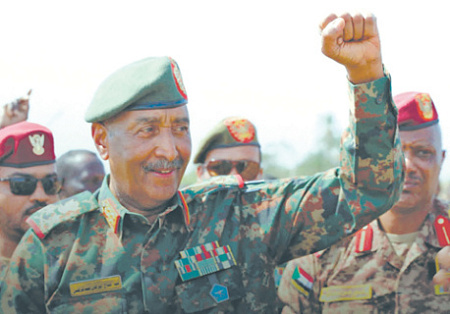
Sudan’s central government has formally urged the European Union to cease all arms sales to the United Arab Emirates (UAE), citing what it describes as Abu Dhabi’s critical military support to the Rapid Support Forces (RSF) rebels. This stark demand comes as the RSF has dramatically expanded its territorial control, notably seizing the strategically vital city of El-Fasher in Sudan’s Darfur region. This development not only poses a direct challenge to ongoing international peace efforts, particularly those spearheaded by the United States, but also significantly amplifies calls for diplomatic and economic pressure on the Emirates.
Speaking to Politico, Sudan’s Ambassador to Belgium and the EU, Abdelbagi Kabbeir, articulated Khartoum’s urgent appeal. He stressed that foreign military equipment supplied to the UAE is frequently diverted to third-party combat zones, including Sudan. “These weapons are not intended for use by third parties,” Kabbeir asserted, urging the EU to “weigh the moral balance against the trade balance.” The diplomat also warned of the broader instability that could emanate from the Sudanese conflict, cautioning that events “in Sub-Saharan Africa will have an impact on the Mediterranean region.”
In response to these grave allegations, Anouar el-Anouni, an EU spokesperson for foreign affairs and security policy, reaffirmed the bloc’s stance. He stated that the EU is obligated to “deny exports if this could contribute to human rights violations, internal instability, or armed conflict.” El-Anouni further emphasized a direct message to regional actors: “All third parties, especially regional countries supplying weapons and finance to the warring factions, must immediately cease their support and refrain from fueling an already explosive situation.” He reiterated the EU’s commitment to leveraging its diplomatic tools for a peaceful resolution.
The fierce conflict in Sudan erupted in April 2023, stemming from a power struggle between General Abdel Fattah al-Burhan, head of the Sovereign Council and the Sudanese Armed Forces (SAF), and General Mohamed Hamdan Dagalo, leader of the Rapid Support Forces (RSF). The clashes, initially confined to Khartoum, quickly spread nationwide. Crucially, the SAF-led government severed diplomatic ties with the UAE, openly declaring Abu Dhabi an aggressor state. Sudan accused the Emirates of attempting to destabilize Africa for resource exploitation and, more pointedly, of supplying weapons and mercenaries to the RSF.
Evidence suggesting indirect support for Sudanese rebels has steadily mounted. In April, a UN panel of experts monitoring the situation in Sudan revealed an investigation into how mortar shells, originally exported from Bulgaria to the UAE, ended up in the hands of the RSF. These weapons, discovered in Sudan’s North Darfur region, bore serial numbers matching a 2019 Bulgarian shipment to the Gulf state. Beyond ammunition, a separate investigation by The Washington Post indicated that the Emirates allegedly provided combat drones and other offensive weaponry to the RSF, facilitating their battlefield advances.
The recent capture of El-Fasher, a critical logistical hub in western Sudan, marks the RSF’s most significant territorial gain to date. This offensive directly undermined delicate peace initiatives, including those pursued by former US President Donald Trump’s administration. Just days before the city’s fall, US officials were attempting to convene talks in Washington between the warring factions to broker a peace deal. The intensified fighting around El-Fasher has now effectively stalled these mediation efforts, amidst grave accusations against the RSF of widespread atrocities and mass killings targeting civilians.
Adding significant weight to the allegations, US Secretary of State Marco Rubio issued a stern warning recently. Without explicitly naming the UAE, Rubio stated, “Our biggest problem right now – and it’s not in isolation from everything else, but we have to highlight it – is what the Rapid Support Forces have been doing in recent weeks. They don’t have manufacturing capabilities. Someone is giving them money, giving them weapons; it’s all coming through a certain country. We know who it is, and we’re going to talk to them about it and make it clear that this will reflect poorly on them, on the whole world.”
Rubio’s statements strongly implied that the US administration is fully aware of the “parties involved” in aiding the rebels. He further hinted that these actors are part of the US-led mediation group, which notably includes the UAE, Saudi Arabia, and Egypt. This strategic revelation by a senior US official underscores the growing international frustration and signals a potential shift towards direct and significant pressure on the Emirates to cease any alleged involvement in fueling the Sudanese conflict. The coming weeks are likely to see intensifying diplomatic efforts aimed at de-escalation and accountability within the region.
